Constitution
Electoral college: keep it!
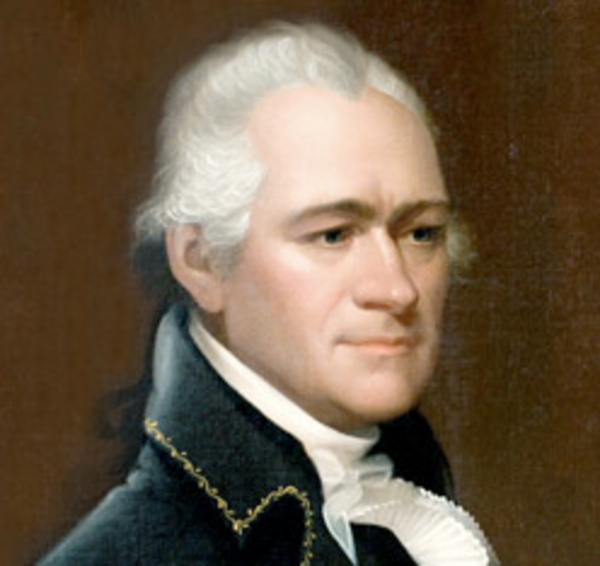
Let us examine the original method and rationale concerning the electoral college and the nomination of the President of the United States set forth by Alexander Hamilton in The Federalist Papers, No. 68.
Hamilton’s reasoning
“It was desirable,” wrote Hamilton, “that the sense of the people should operate in the choice of the person to whom so important a trust [as the Presidency] was to be confided.”
Hamilton thus begins on democratic grounds. The sense of the people is to operate in the choice of a President. “This end,” Hamilton continues, “will be answered by committing the right of making it, not to any pre-established body, but to men chosen by the people for the special purpose, and at the particular conjuncture.
Therefore, the right of choosing a President is not to reside in the people, but with men chosen by the people for this particular purpose. Here is what the Constitution tells us about choosing the Electors of the President, Article II, Section 1, provides that “each State shall appoint [the Electors] in such Manner as the Legislature thereof may direct …” The manner of appointing Electors is absolutely under the control of the state legislatures, at whose discretion the people may exercise the privilege which is now accorded them. That privilege may be withheld. The legislatures have the constitutional power of themselves choosing Electors, as indeed was the practice of most of the states during the early presidential elections.
But even if the state legislatures were to bestow on the people the privilege of choosing Electors, the nomination of Electors would not be made by the people. The people would still be at least twice removed from the election of the President. However much the sense of the people may be operative in the choice of the President, the immediate choice is to be made, as Hamilton points out, “by men most capable of analyzing the qualities adapted to the station.”
The most cable persons
Who would these men be? Again employing democratic language, Hamilton said they would “be selected by their fellow-citizens from the general mass.” However, as Hamilton must have known, and as the early elections bore out, the Electors of the President would generally be drawn from the more distinguished and influential members the community. [The roster of the early elections reads like a “Who’s Who” in State Governments!] It was such men Hamilton had in mind when he said that the persons selected “will be most likely to possess the information and discernment requisite to such complicated investigations” as the choosing of a President.
The President was to be chosen by men who possess information and discernment, and they were to act, said Hamilton, “under circumstances favorable to deliberation.” The circumstances favorable to deliberation are these: First, each college of Electors should consist of a small number of persons. Hence they would be relatively free from faction. Second, the Electors in each state would assemble in the state in which they were chosen and would vote on the same day. “This detached and divided situation,” said Hamilton, “will expose them much less to heats and ferments, which might be communicated from them to the people, than if they were all to be convened at one time, in one place.”
No deal-making in the electoral college
Furthermore, since the electoral colleges were not to assemble in a general convention, the Electors would be less subject to “cabal, intrigue, and corruption.” In other words, the electoral college of one state would not be in communication with the electoral college of another; no college would know how the others were voting; there would be no “negotiations,” no “deals,” no prostitution of votes. Third, each college of Electors was to deliberate in secrecy. They would be insulated from each other, but also from the public at large. Fourth, no Senator or Representative, or any person holding office under the federal government, could be appointed an Elector.
Removed from the influence of congressmen, and insulated from the general public [and the mass media], the Electors could ballot for the person of their own choice. They would not be robots registering the will of congressional parties or of popular majorities. They would not be pledged to some presidential candidate, or as Hamilton remarked, they would be “free from any sinister bias.” In short, Hamilton, and the Founders generally, anticipated and sought to avoid all the evils of tumultuous party conventions! They clearly understood that the independence and integrity of the Presidency would depend very much on the independence and integrity of his Electors.
The House had the final say
Although the electoral colleges were intended to have absolute control over the nomination of persons for the Presidency, the final choice from among those nominated might, under certain contingencies, devolve upon the House of Representatives. Thus, either the Electors might fail to give a majority of their votes to a single candidate, or they might bestow equal electoral majorities on two, and possibly even three, candidates. However, neither of these contingencies was likely to occur often; the first, for obvious reasons, the second, if only because the Electors would frequently favor an incumbent President. This being so, the House of Representatives would usually be spared the task of electing the President of the United States.
Choosing without regard for big campaigns
Now the point I wish to elicit from the preceding paragraph is this: In deliberating upon possible candidates for the Presidency, the Electors would almost certainly nominate persons of national reputation. In this respect, Electors would not differ from the delegates at today’s national party conventions. But unlike those delegates, the Electors would choose presidential candidates without thought that the candidates chosen would have to engage in a [tumultuous, and demagogic inspired] popular election. This has profound implications for the intended character of the Presidency, indeed, for the Government as whole.
The first implication is this. Because a President, under the original constitutional electoral system, would not have to engage in a popular election, presidential candidates would be chosen more on the basis of ability and less on the basis of popularity. Second, because a President would not campaign for his election, he could enter office virtually unencumbered by “political debts.” Since relatively few men will have contributed to his election, relatively few men could claim his favor. As a consequence, executive patronage would conform more to the principle of merit, less to the principle of spoils. This being so, the election of a new President would not result in a wholesale change of public office-holders. The administration of Government would be more stable, and the very tone of political life more elevated.
Third, since a President would not have to campaign for his election, he would assume the duties of his office unencumbered by party platforms. Unburdened by such commitments, he could then promote public policies truer to his own principles and with the energy of his own convictions.
Have Presidential debates elevated the public mind?
A fourth implication of the intended electoral system is that its operation, considered by itself, would contribute little to the political education of the public. Since there would be no campaign for the Presidency, candidates for that office would not engage in public debate or discussion of national issues. However, it may be well argued that such debate or discussion, except perhaps in few instances, has not really served to ‘elevate the public mind,’ and nor has it been attended with effects more harmful than good.
Certainly, the Founders regarded the prospect with skepticism, to say the least. If the people, as Hamilton intimated in Federalist 68, are incapable of analyzing the qualities required of a President, they are surely incapable of analyzing the complex issues confronting a nation. Hence, a system that makes the choice of a President dependent on public debate or discussion of national issues would be regarded by Hamilton as an absurdity.
No doubt this will sound strange to modern ears. Perhaps it will be explained away by referring to Hamilton‘s aristocratic “bias.” But it was George Mason, a delegate from Virginia and a man of reputedly democratic inclinations, who said: “… it would be as unnatural to refer the choice of a proper character for Chief Magistrate to the people, as it would to refer a trial of colors to a blind man. This is not to suggest that the Founders were unmindful of the need to educate the people.
Avoiding corruption
They simply felt that an election, upon whose outcome hangs the personal ambitions and material interests of so many individuals and groups, is a most dangerous means of providing public education. For the Presidency is so replete with the power to dispense goods and favors that, were an election for this office predicated upon public debate and discussion of national issues, not reason so much as passion, not candor so much as deception, not statesmanship so much as demagoguery, would too often prevail over the public mind. Far from educating the people, such elections would lead to their corruption.
A shield from mobs and insiders alike
Now let me sum up the principal intentions underlying the constitutional mode of electing the President of the United States. We have seen that the President was never intended to appeal to the suffrages of the people. The people might or might not choose his Electors. But however chosen, the Electors were to nominate for the Presidency the person whom they themselves deemed best qualified for the office. Deliberating in secrecy, the Electoral Colleges were to insulate the future President from the democratic and oligarchic influences to which he would be exposed were he nominated by the likes of present-day national party conventions. Indeed, let it be said here and now; “It was the design of the Constitution, though it is not expressed, that the President should not know the characters of those to whom he is indebted for his election.”
Clearly, this electoral system was intended to favor neither the interests of the many nor the interests of the few. It held another promise. It held the promise of insuring wisdom in the choice of a President. It held the promise of securing the President’s independence and integrity. It held the promise, so far as institutions can, of compensating for the frailties of human nature, those frailties which so often emerge when men actively seek or campaign for public office.
No obligation
The President, I repeat, was not to appeal to the suffrage of the people or of any electoral body whatsoever. The dignity and powers of his office were to be conferred upon him by a select body of men unknown, as it were, to himself. He was to assume office without any obligation on his part other than to uphold and defend the Constitution. This is not simply an idealized picture. It is simply the ideal that guided the architects of the Presidency.☼
-
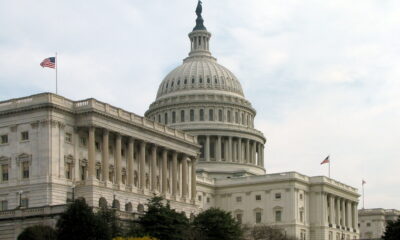
 Civilization5 days ago
Civilization5 days agoEnd the Filibuster – Or Stop Pretending To Govern
-

 Education4 days ago
Education4 days agoIgnoring the Science: The Curious Case of Cell Phone Bans
-

 Civilization4 days ago
Civilization4 days agoA Better U.S. Strategy for Greenland Than Annexation
-
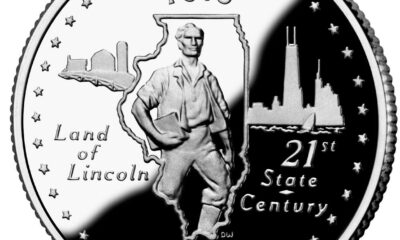
 Guest Columns5 days ago
Guest Columns5 days agoWaste of the Day: Thousands of Earmarks in Illinois State Budget
-
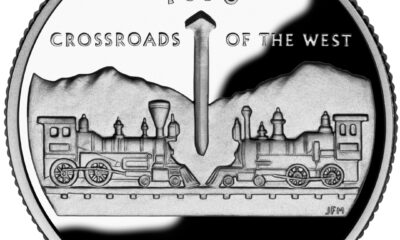
 Executive3 days ago
Executive3 days agoWaste of the Day: Utah University Trustees Don’t Know Their Job
-

 Education5 days ago
Education5 days agoA Solid Core Enlivens Free Speech and Viewpoint Diversity
-

 Executive4 days ago
Executive4 days agoWaste of the Day: $8 Water Filter Costs the Government $156
-
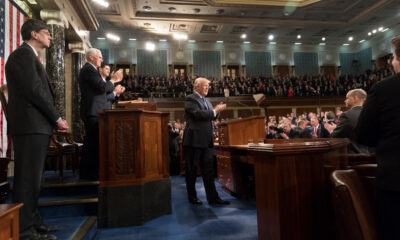
 Civilization3 days ago
Civilization3 days agoTrump’s Longest Speech, His Shortest Margin for Error




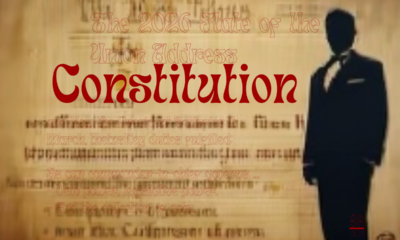



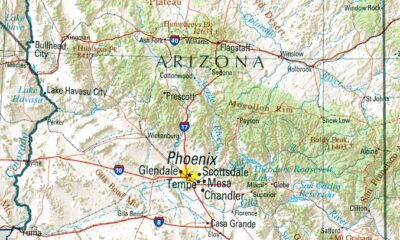

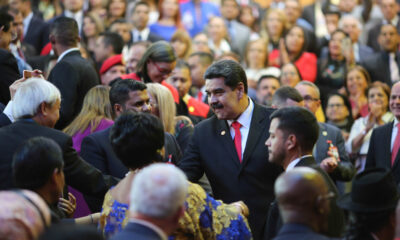

David Vines liked this on Facebook.
William Hall liked this on Facebook.
The Founding Fathers knew what they were doing. Of course being inspired by “GOD” helps.
The EC is an integral part of the system of checks and balances. The Founders understood that democracy in its purist form, a.k.a. populism, is dangerous. Therefore, a system was devised to shield us from the fickle hand of populism, which includes three separate but equal branches with a bicameral legislature, the Electoral College, and an arduous amendment process.
This is Civics 101. Yet, I’ve had to lecture on the topic dozens of times in the last week. Oy!
Nick Raygun liked this on Facebook.
Russell Fennick liked this on Facebook.
Jerry L Hughes liked this on Facebook.
Is the EC currently functioning as the Founders expected?
The electors are largely unknown to the general public.
Electors are chosen in large blocks by popular vote and not district by district.
Electors in many states have no choice in their ballot and do not exercise independent judgment.
Electors are not delibarative representatives; There is no debate or discussion among electors, they are “voluntary party lackeys and intellectual nonentities.” “They always voted at their Party’s call And never thought of thinking for themselves at all.”
Candiates are largely chosen by the national parties. Founders like Washington specifically cautioned against such parties.
The current EC is not only a dangerous populous system, but also an inaccurate one ( < 3% ).
The answer would be, not to abolish it, but to strengthen it. That means a State-by-State project to have all electors run for their electorships under their own names. The strength of the Electoral College would then depend on the moral strength of the people of each State.